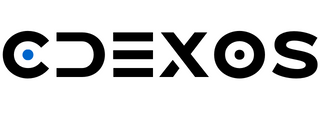CDEXOS Overview: As AI becomes increasingly prevalent in our lives, it’s important to consider the ethical implications of this technology, particularly in the realm of cybersecurity. While AI has the potential to greatly enhance cybersecurity measures, it also raises concerns about privacy, bias, and accountability. In this article, we’ll explore the balance between cybersecurity and AI ethics, and what organizations can do to ensure they’re using AI in an ethical and responsible way…Enjoy!
Your Cybersecurity Solution Starts Here!
You need to evolve your Cybersecurity protection, but where do you start? CDEXOS helps organizations identify, protect and respond to cyber threats. Our mission prioritizes business decisions so you make informed decisions on data protection, cloud migration, and cybersecurity.
The Benefits of AI in Cybersecurity
AI revolutionizes the field of cybersecurity by improving threat detection and response times. Machine learning algorithms quickly analyze massive amounts of data to identify patterns and anomalies, allowing organizations to detect potential cyber threats before they cause significant harm. Additionally, AI automates certain cybersecurity tasks, freeing up security professionals to focus on more complex issues.
Organizations can also use AI to enhance cybersecurity in several ways. For instance, they can use natural language processing to analyze employee communications for potential security threats, and image recognition to monitor physical security measures like surveillance cameras. Using Artificial Intelligence can significantly improve an organization’s security posture and decrease the likelihood of data breaches.
The Ethical Implications of AI in Cybersecurity
Although AI has many potential benefits for cybersecurity, it also raises a number of ethical concerns, including privacy. AI can potentially access or share sensitive information without consent as it monitors and analyzes data. Moreover, AI algorithms may exhibit bias, especially when trained on data that reflects societal biases, leading to unfair targeting or exclusion of certain groups of people from cybersecurity measures.
Another ethical concern is accountability. Using AI to automate certain cybersecurity tasks raises concerns about accountability since mistakes or errors could occur without proper oversight, potentially leading to serious consequences if a cyber attack goes undetected or is not responded to in a timely manner.
Finding the Right Balance
Given these ethical concerns, it’s important for organizations to find the right balance between cybersecurity and AI ethics. Here are some steps organizations can take to ensure they’re using AI in an ethical and responsible way:
- Develop a clear understanding of the ethical implications of AI in cybersecurity. This involves conducting a thorough risk assessment to identify potential ethical issues and develop strategies for addressing them.
- Implement strong data governance policies to protect the privacy of individuals and ensure that sensitive information is not accessed or shared without consent. This may involve implementing data access controls, anonymizing data, or providing individuals with the ability to opt out of data collection.
- Address bias in AI algorithms by ensuring that training data is diverse and representative of all groups of people. Additionally, organizations should regularly monitor and test their AI algorithms to identify and correct any biases.
- Implement appropriate oversight and accountability measures to ensure that AI is being used responsibly. This may involve establishing clear roles and responsibilities for AI-related tasks, implementing auditing and monitoring processes, and providing appropriate training for employees.
CDEXOS Summary
AI has the potential to greatly enhance cybersecurity, but it’s important to consider the ethical implications of this technology. By taking steps to address privacy, bias, and accountability concerns, organizations can ensure they’re using AI in an ethical and responsible way. As AI continues to evolve and become more integrated into our lives, it’s critical that we find the right balance between leveraging its benefits and addressing its ethical implications. By doing so, we can ensure that AI is used in a way that benefits society as a whole.
Let CDEXOS provide you with a complementary Cybersecurity Assessment by completing our request form today!
Sam Palazzolo, Founder/CEO
